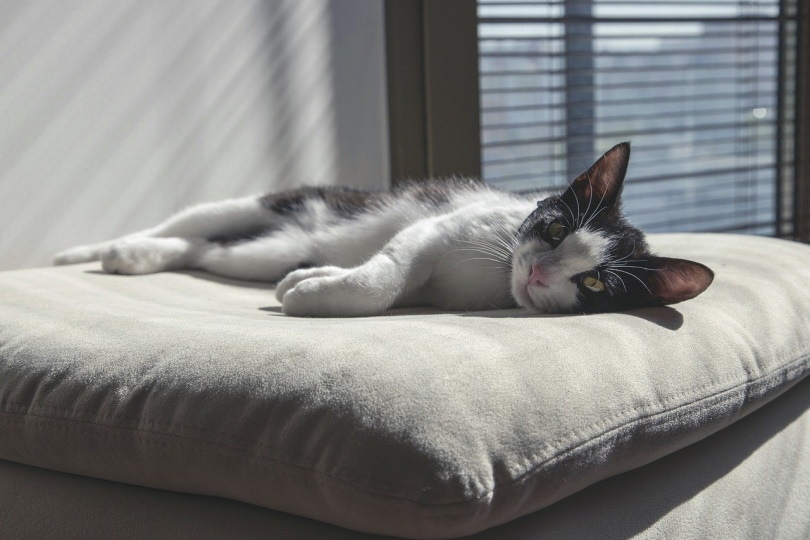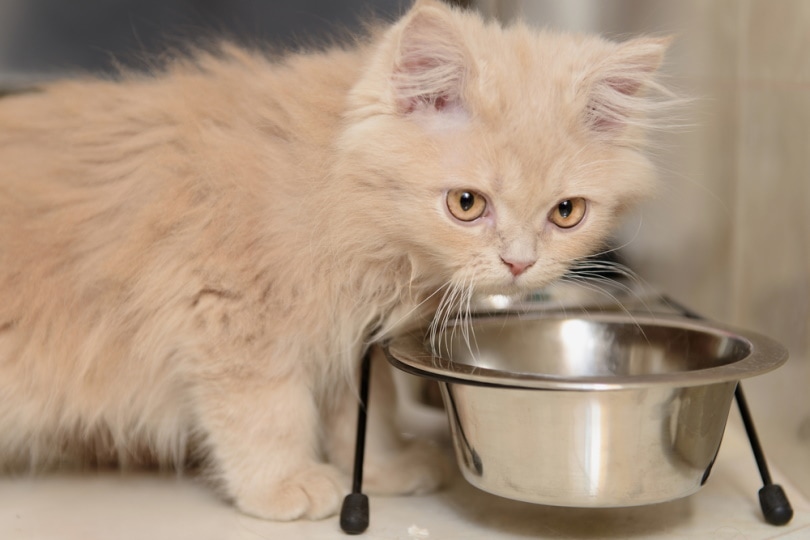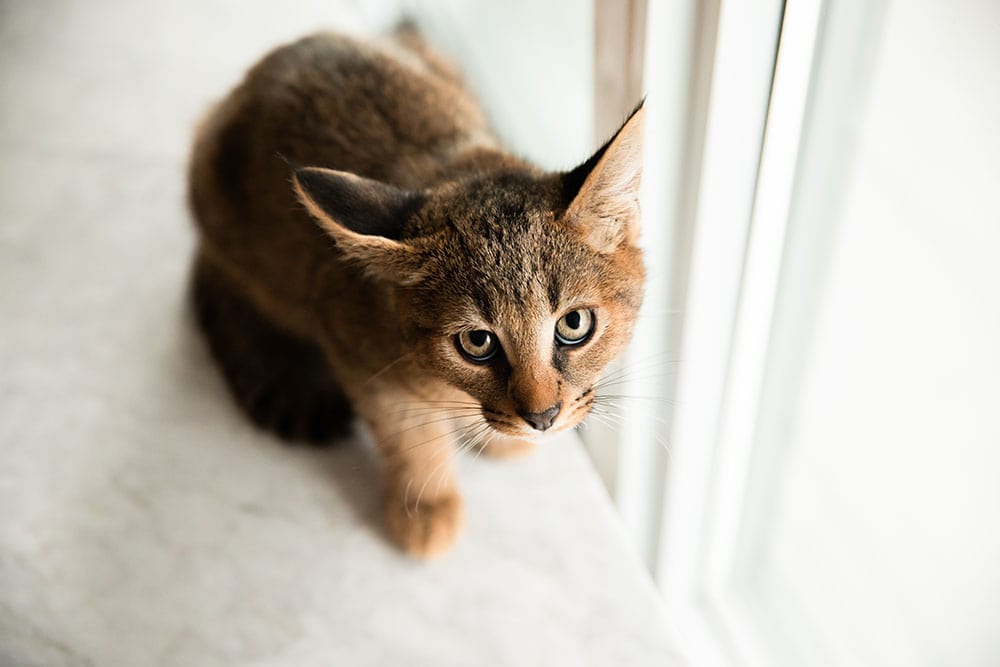How Long Can I Leave My Kitten Home Alone? What You Need to Know!

Updated on

Bringing a new kitten home is such an exciting experience. If you have recently adopted a kitten or are looking to add one to your family, it’s almost inevitable that a time will come when you need to leave it at home alone.
Kittens need a lot of love and attention when they first come home, but as they get older, they will become more independent, making leaving home a lot easier and less stressful. Depending on your kitten’s age, the range of time can vary between 3 and 24 hours. In this article, we’ll discuss how long you can leave your new kitten at home, what they may go through when left alone too long, and how you can keep your kitten safe when you need to leave it at home.
Can I Leave My Kitten at Home Alone While I’m at Work?
While cats are known for being more independent than dogs, kittens are different in that they need a little extra care and attention than an adult cat and will need to be fed more regularly. It is also important to remember that kittens are more curious and may get into mischief.
Kittens between 8 weeks and 4 months generally benefit from 4–6 hours of human interaction. Another vital element to consider is that when you bring a new kitten home, it will be entering a brand-new environment with new people and a new routine. This can be quite stressful for a young kitten, and it will need all the support it can get to transition and feel comfortable.
They need to learn your smell, recognize your face, and learn that you are responsible for providing them with food. When it is time to go back to work, the cat’s age and whether or not there is another family member at home will determine how long you can leave it. As a general guideline, a kitten that is:
- 8 weeks to 4-month-old cats can be left for about 3–4 hours
- 4–5-month-old cats can be left for about 5 hours
- 6-month-olds can be left for about 6 hours
- Cats older than 6 months can be left for up to 24 hours

If you need to leave your kitten at home for longer in the early weeks, it is vital to have someone come in and check on it. This period will be short, and as your kitten gets older, you can leave it at home for longer periods. You could also consider getting a pair of kittens so that they can keep each other company.
What Happens if I Leave My Kitten Alone for Too Long?
How a kitten is affected when left alone for too long will depend on the length of time it has been left alone, the conditions of its environment, what it has access to, and how often it is left alone.
In the early stages of a kitten’s life, they require more activity and socialization, which is when they form trusting bonds with their owners. When they get lonely, they are prone to become destructive while trying to entertain themselves.

How to Keep Your Kitten Safe When Home Alone
Eventually, you will need to leave your kitten at home alone for a few hours, but here are some tips and guidelines you can follow to make sure your kitten is safe.
- Kittens need to eat small portions of food often, so you will need to ensure that you leave enough dry food for your kitten while you are gone. Dry food is a better option because it lasts longer without going spoiling. Wet food can go rancid and grow bacteria. Feed your kitten when you are around so you can remove the leftovers.
- Kittens also need to stay hydrated, so you must make sure your kitten has one or two small bowls of water to drink from.
- Ensure the environment is safe, as your curious kitten will explore while you are away. Remove items that can be knocked over and potentially cause injury; some plants and herbs may be toxic when ingested. Also, ensure that your kitten can’t escape!
- Make sure your kitten doesn’t become too hot if temperatures are high or too cold if temperatures are low. You can leave an air conditioner on a hot summer’s day or provide extra blankets when it’s frigid outside.
- Your kitten’s litter box may become full while you are away, which will result in your kitten going elsewhere to do its business. Consider leaving a second litter box to ensure that doesn’t happen, but also make sure your kitten knows where it is.
- If you know in advance that you will be away often, consider getting your kitten a companion. While it may increase your costs and responsibilities, it will provide them with a friend to interact with while you are away.
- If you need to be away for longer than the recommended amount of time, consider getting a cat sitter, friend, or family member to check in while you are away. This will help ensure that they are given attention and have fresh food. If you use a cat sitter, discuss the feeding schedule, how and when to change litter, and your vet’s contact information.

Final Thoughts
While kittens can be left alone, they shouldn’t be left alone for long periods. A new kitten shouldn’t be left alone for longer than 4–6 hours, and if you are considering adopting one, it will be beneficial if you can be at home with it for most of its early weeks. Leaving your young kitten at home for too long may result in destructive behavior and a lonely kitty. If you need to leave your kitten, ensure it has enough food and water, a clean litter box, and a safe space, or consider getting a pet sitter if you are away for long periods. And if you are up for it, a companion will keep your cat entertained and happy.
Featured Image Credit: VLADIMIR LVP, Shutterstock










